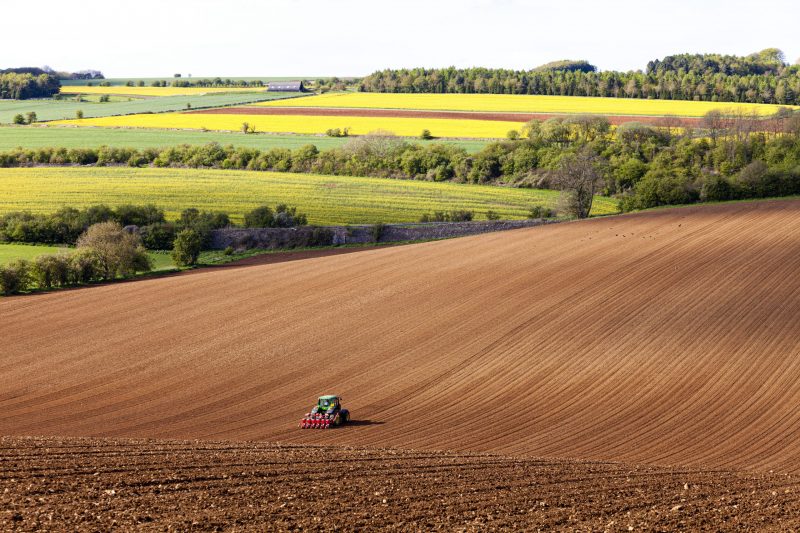How Does Precision Agriculture Affect the Environment? Precision agriculture, a modern farming approach that leverages technology to optimise crop production, is revolutionising the agricultural sector with significant implications for the environment. By employing data-driven techniques and advanced technologies, precision farming aims to increase efficiency, reduce waste, and minimise environmental impact. Let’s explore how this innovative approach is shaping the relationship between agriculture and the environment.
Reducing Chemical Use and Environmental Contamination
One of the most significant environmental benefits of precision agriculture is the reduction in chemical use. Traditional farming often involves blanket application of fertilisers and pesticides across entire fields, leading to overuse and potential runoff into water systems. Precision farming, however, enables targeted application of these inputs.
By utilising GPS-guided machinery, soil sensors, and crop monitoring technologies, farmers can apply fertilisers and pesticides only where and when they are needed. This approach not only reduces the overall use of chemicals but also minimises soil and water pollution, protecting local ecosystems. For instance, some precision farming techniques have been shown to reduce herbicide use by up to 90% in certain crops.
Conserving Water Resources
Water scarcity is a growing concern in many regions, and agriculture is often a significant consumer of water resources. Precision agriculture offers solutions to improve water use efficiency:
- Advanced irrigation systems use soil moisture sensors and weather data to apply water precisely when and where crops need it.
- Drip irrigation techniques, guided by precision technology, can reduce water usage by up to 30% compared to traditional methods.
These water-saving practices not only conserve a precious resource but also reduce energy consumption associated with water pumping and distribution.
Soil Health and Carbon Sequestration
Precision agriculture practices contribute to maintaining and improving soil health:
- Controlled traffic farming (CTF) confines heavy machinery to specific lanes, reducing soil compaction across the field. This can increase water infiltration by up to 400%, reducing runoff and potential flooding.
- Variable rate technology allows for precise application of organic matter and other soil amendments, helping to maintain optimal soil structure and fertility.
Healthier soils can sequester more carbon, potentially mitigating climate change effects. Some studies suggest that precision agriculture practices could increase soil organic carbon by 0.5-1.0 tonnes per hectare per year.
Reducing Greenhouse Gas Emissions
Precision agriculture can contribute to reducing greenhouse gas emissions in several ways:
- Optimised fertiliser use reduces nitrous oxide emissions, a potent greenhouse gas.
- Improved fuel efficiency through precise machinery guidance and reduced overlaps in field operations lowers carbon dioxide emissions.
- Enhanced crop productivity can lead to increased carbon sequestration in plant biomass.
Research indicates that widespread adoption of precision agriculture could reduce greenhouse gas emissions from crop production by up to 10%.
Biodiversity Conservation
By reducing the overall environmental footprint of farming, precision agriculture can indirectly benefit biodiversity:
- Reduced chemical runoff protects aquatic ecosystems and wildlife.
- Precision weed control methods can reduce the need for broad-spectrum herbicides, potentially benefiting beneficial insects and plant species.
- More efficient land use may reduce pressure to convert natural habitats to farmland.
Challenges and Considerations
While the environmental benefits of precision agriculture are significant, it’s important to consider some challenges:
- The initial investment in technology can be substantial, potentially limiting adoption, especially for smaller farms.
- There are concerns about data privacy and ownership related to the vast amounts of farm data collected.
- The environmental impact of manufacturing and disposing of precision agriculture technologies needs consideration.
- Some critics argue that precision farming may intensify industrial agriculture practices, potentially leading to negative environmental outcomes if not managed carefully.
Looking Ahead
Precision agriculture offers promising solutions to many environmental challenges associated with traditional farming practices. By optimising resource use, reducing chemical inputs, and promoting soil health, this approach has the potential to significantly reduce agriculture’s environmental footprint while maintaining or even increasing productivity.
As technology continues to advance and become more accessible, the environmental benefits of precision agriculture are likely to grow. However, it’s crucial to approach this technology thoughtfully, considering both its advantages and potential drawbacks. Policymakers, researchers, and farmers must work together to ensure that precision agriculture develops in a way that maximises its environmental benefits while addressing challenges and concerns.
Are you looking to implement precision agriculture on your farm? The Arvorum app is built for you.








